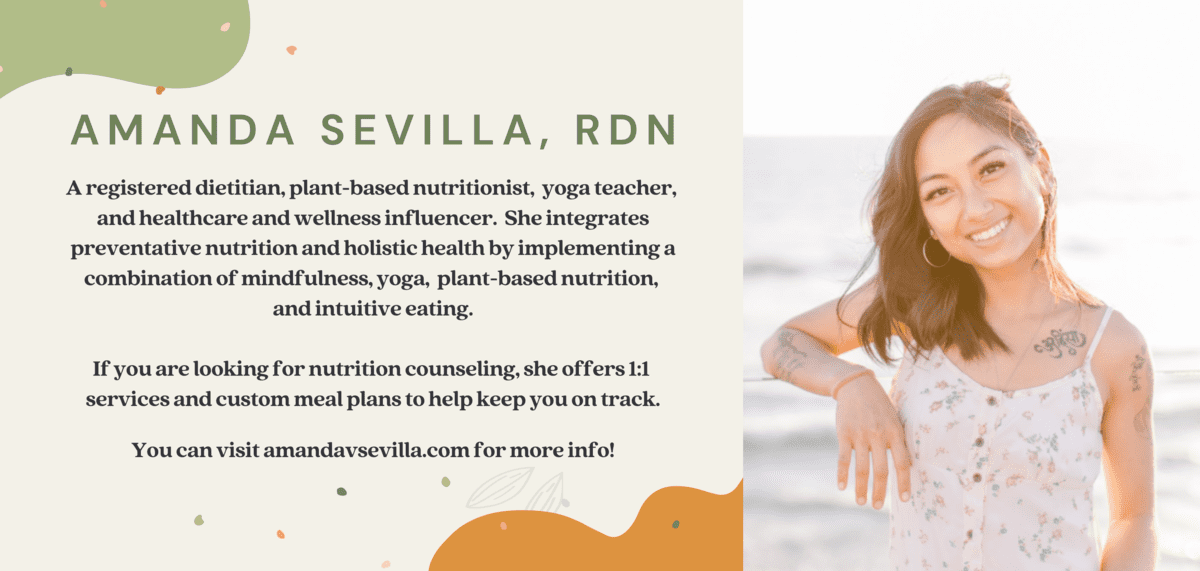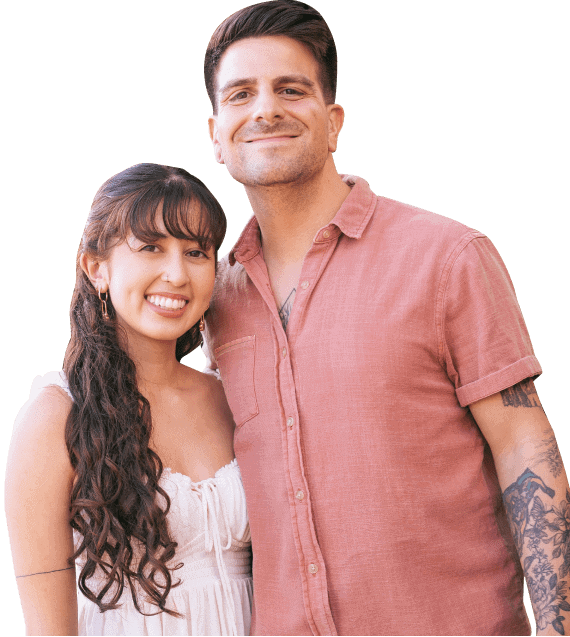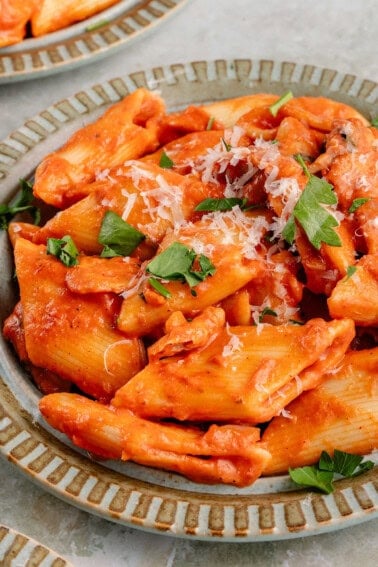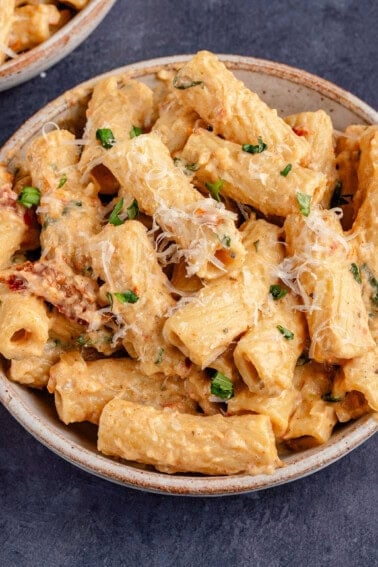This post may contain affiliate links. Please read our disclosure policy.
This article was written by Amanda Sevilla, RDN.
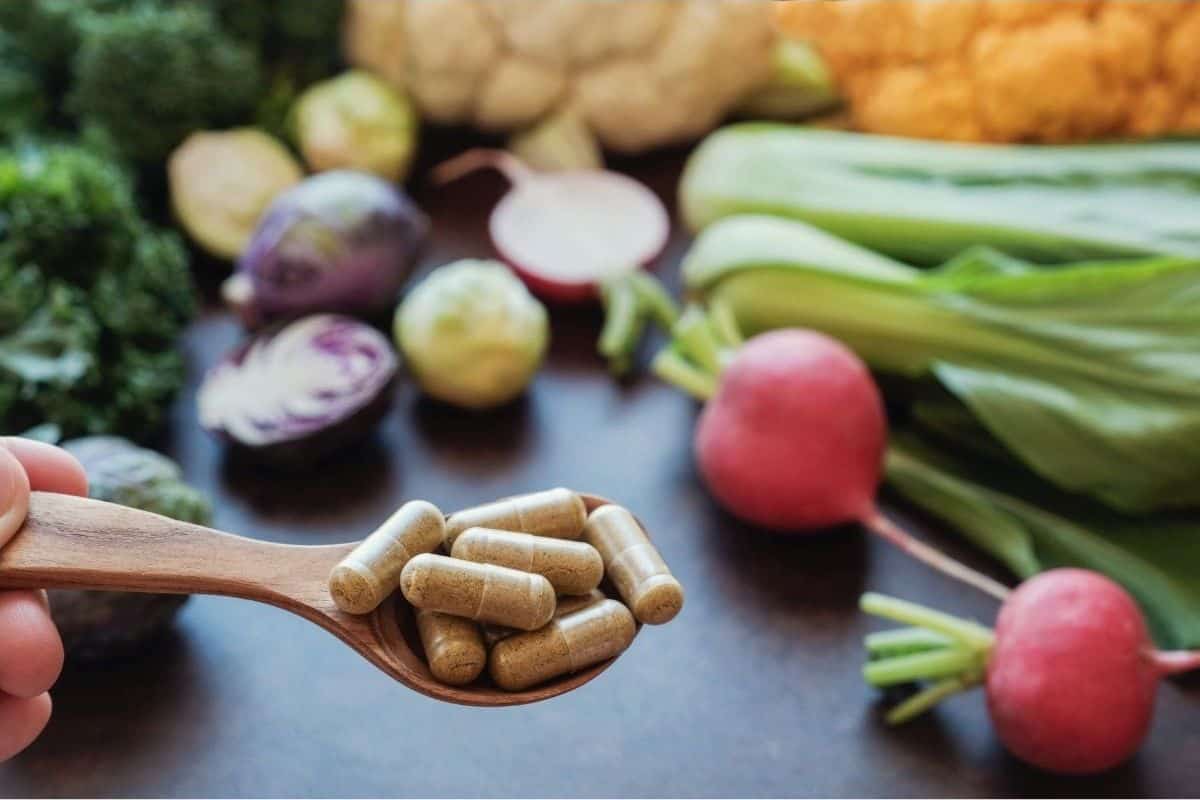
What supplements should I be taking on a vegan diet? A vegan diet has been a growing trend in the past few years and is continuing to grow. There are many reasons why one would want to ditch dairy, meat, and other animal products, including but not limited to: health benefits, environmental, or ethical reasons.
A big concern for those interested in eating fewer animal products is their ability to meet all their nutritional needs while only eating plant-based products. The good news is that, like all eating patterns, appropriately planned vegan diets are healthful, nutritionally adequate, and may provide health benefits in the prevention and treatment of certain diseases. According to the Academy of Nutrition and Dietetics, “these [diets] are appropriate for all stages of the life cycle, including pregnancy, lactation, infancy, childhood, adolescence, older adulthood, and athletes.”
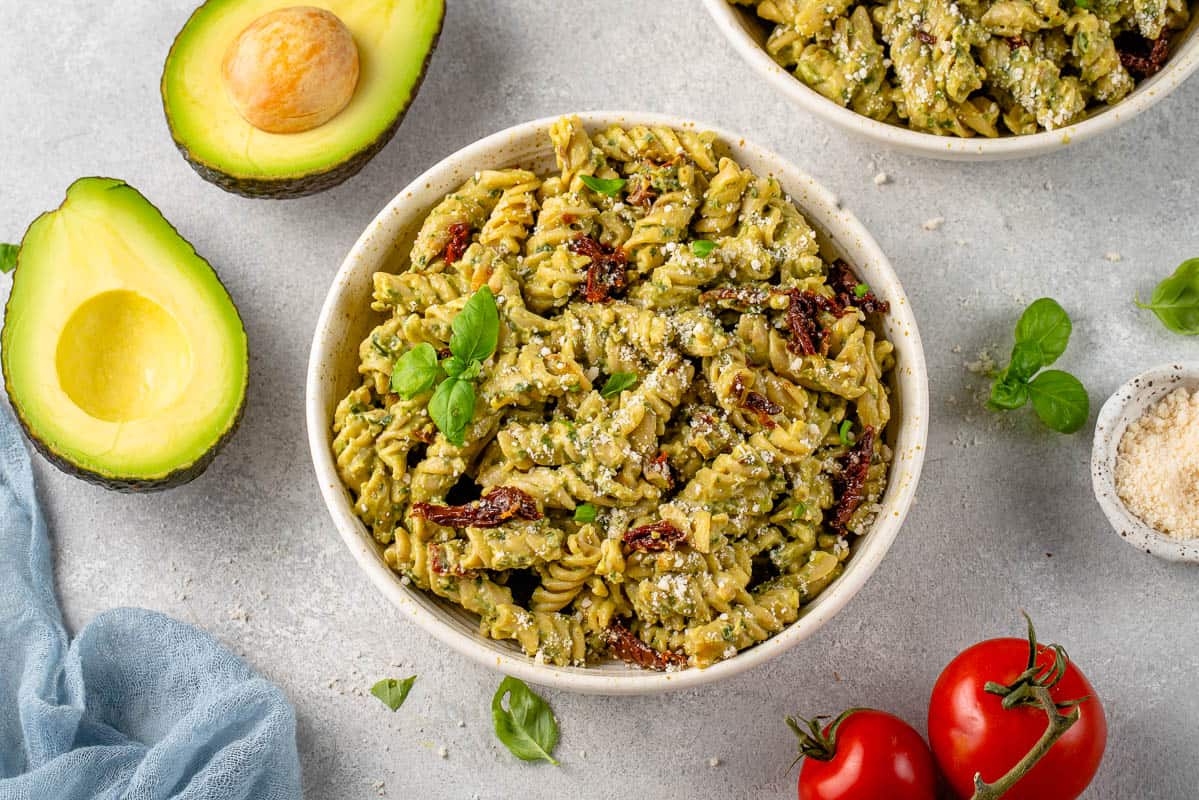
Why would people want to supplement on a vegan diet?
A well-planned diet means taking into account nutrients that we might not get as abundantly without animal products. This doesn’t mean that the nutrients aren’t available. It simply means we need to be mindful and do extra planning at the beginning of our vegan journey to ensure we are getting what we need. For those following a nutritionally dense, whole foods plant-based diet, the majority of micronutrients we need regularly is already covered by fruits, vegetables, legumes, whole grains, and herbs and spices. In fact, vegans tend to eat more vitamin C, vitamin A, vitamin E, manganese, and potassium compared to those eating a conventional diet. However, supplementing is still necessary to get the few key nutrients that aren’t found as easily in a plant-based diet (such as vitamin D and vitamin B12).
How do I know which nutrients I need to supplement?
It is recommended that all vegans get regular blood tests to catch any potential nutritional deficiencies as well as speak with a supportive physician to make sure they are supplementing appropriately. A registered dietitian who is experienced in plant-based nutrition counseling may also be very helpful for you to familiarize yourself with a nutritionally dense and balanced plate. Your healthcare provider can let you know how much of each nutrient would be best for you to take.
Essential Nutrients to Supplement on a Vegan Diet
When it comes to the essentials to supplement, vitamin B12, vitamin D, iodine, and DHA/EPA omega-3 fatty acids are the 4 nutrients vegan diets are most likely lacking.
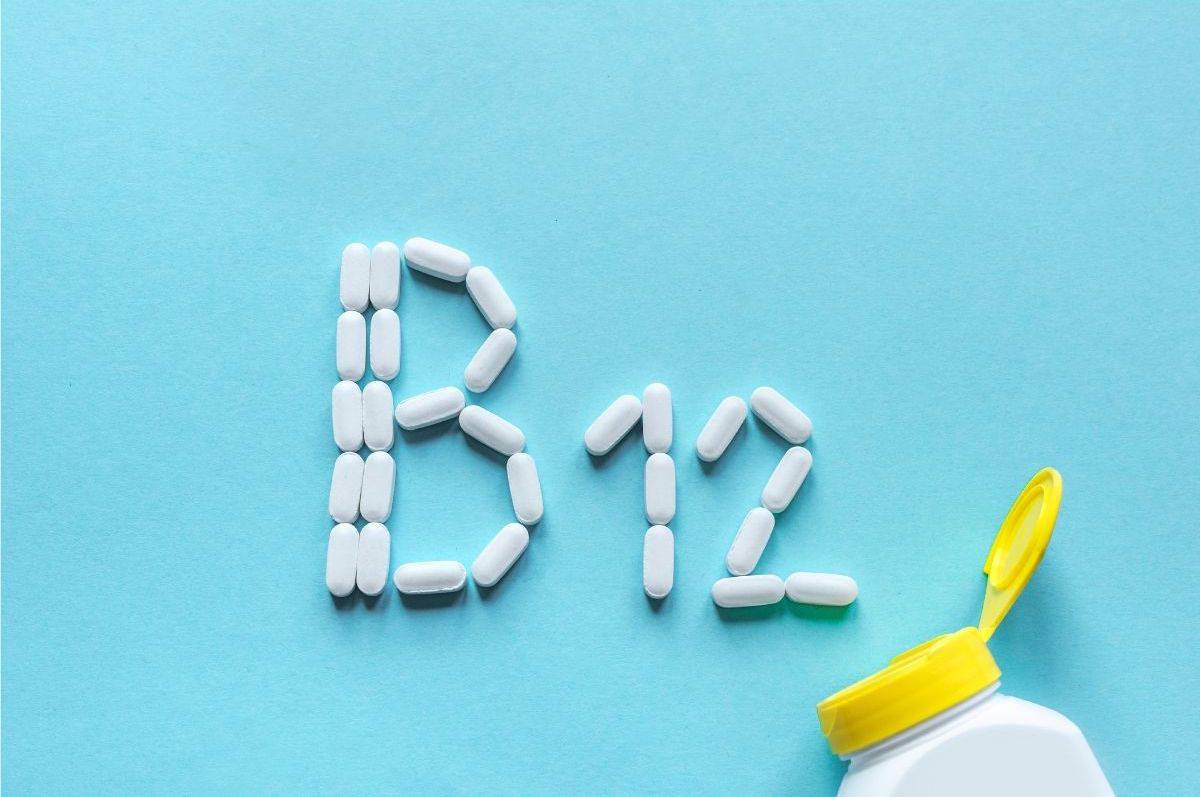
Vitamin B12
This vitamin is the most mentioned vitamin amongst those unsure or unsupportive of a vegan diet. Vitamin B12 is a water-soluble vitamin that plays a big role in the nervous system as well as red blood cell health. This vitamin, as well as folic acid, works with iron to release energy from the food we have consumed. Vitamin B12 is originally produced by bacteria in soil and water in pre-modern times. Our ancestors most likely got their fair share of vitamin B12 from the dirt on their fruits and vegetables. However, washing our vegetables and fruits is essential to remove pesticides, chemicals, or other hazardous substances that may have contaminated the production and transportation line.
Animals also have vitamin B12 in their bodies, which is another way most people believe they get their B12. However, even livestock (cattle, chickens, pigs) require vitamin B12 supplementation to compensate for the lack of natural B12-producing bacteria in today’s soil.
Vegan Sources of Vitamin B12
Although plants do not contain vitamin B12, you can still get what you need by eating these foods for your B12:
- Fortified plant-based milk
- Fortified meat substitutes
- Fortified cereals
- Fortified nutritional yeast
- Vitamin B12 supplements: liquid, capsule, sublingual tablet, or injection if indicated by your physician
Some claim fermented foods, unfortified nutritional yeast, seaweed, and spirulina can be eaten for B12. However, they are not recommended to be used as reliable sources for a whole day’s intake needs.
How much should I take?
The Recommended Dietary Allowance (RDA) for B12 is 2.4 mcg per day.
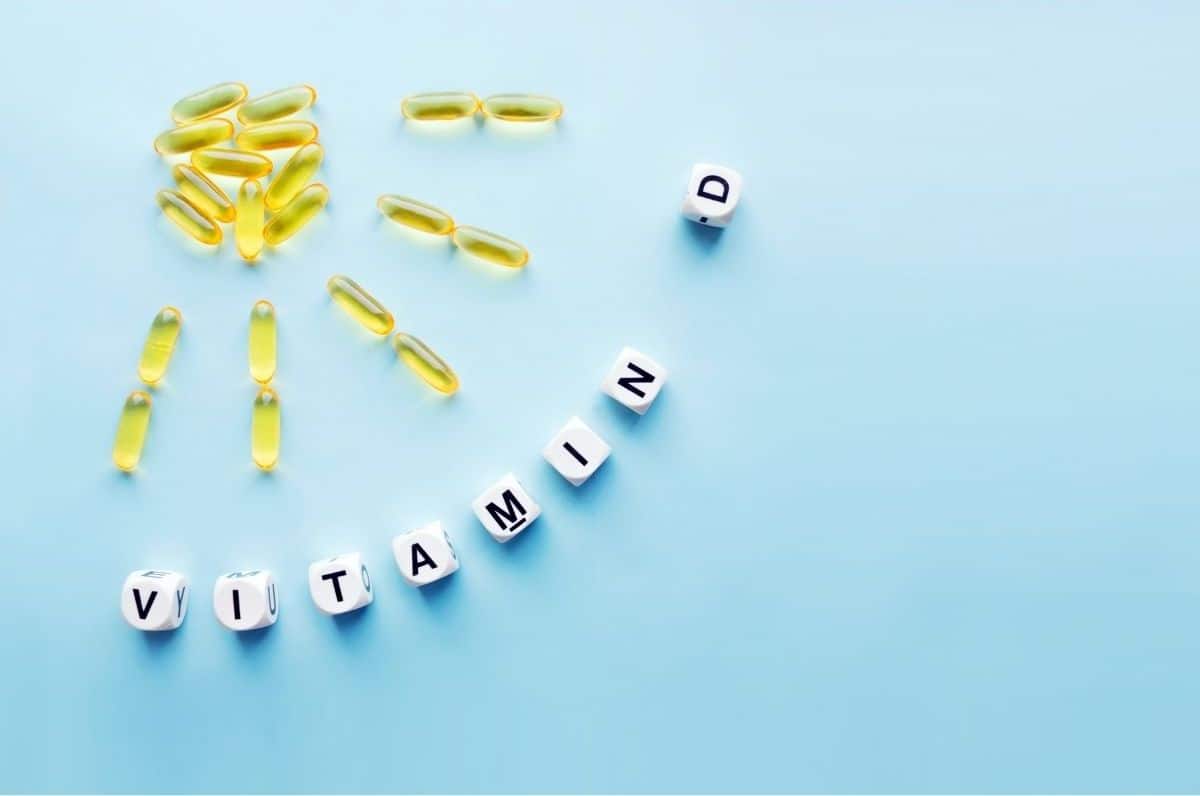
Vitamin D
Vitamin D is essential to calcium absorption, insulin regulation, and overall support of the immune system and the nervous system. It also plays a vital role in our mood. Vitamin D isn’t necessarily classified as an essential nutrient because we can make our own vitamin D. Our skin converts precursors in our blood into vitamin D from ultraviolet B (UVB) radiation in sunlight. Very few foods contain vitamin D naturally, and even cow’s milk is artificially fortified with vitamin D. The reason it is considered essential on this list is because, without enough activation from sunlight exposure, we run the risk of vitamin D deficiency which has been linked to cancers, multiple sclerosis, frailty falls, and other ailments. In today’s day and age, we live inside, work inside, study inside, shop inside, get transported to and from places inside a vehicle. Because of this, it is recommended by all health experts to supplement vitamin D- vegan or not. This is especially important during the fall and winter months when the sun has less time during the day.
It is important to note that vitamin D is a cluster of vitamins: vitamin D2 and D3. Most fortified foods are fortified with vitamin D2, while vitamin D3 can be found in animal products such as egg yolk, liver, butter, and fish oil. Experts believe vitamin D2 may be less effective than vitamin D3 at raising blood levels of vitamin D, which is why supplementing with a vegan vitamin D3 is recommended over a vitamin D2 supplement.
Vegan Sources of Vitamin D
Even though vitamin D is not technically an essential nutrient, it has become a nutritional topic because we can eat vitamin D in fortified foods, and it will be absorbed by the gastrointestinal tract. Make sure you have your daily dose of vitamin D by eating these foods or supplements:
- Fortified plant-based milk
- Fortified orange juice
- Fortified cereals
- Mushrooms grown in sunlight or under a UV lamp
- Vitamin D supplement
How much should I take?
The amount of vitamin D needed is age-dependent. The recommended daily amount for adults is 600 IU for adults between the ages of 19-70 and 800 IU for adults age 71 and older. Most fortified plant-based milk and orange juices will provide half the recommended daily amount per serving.
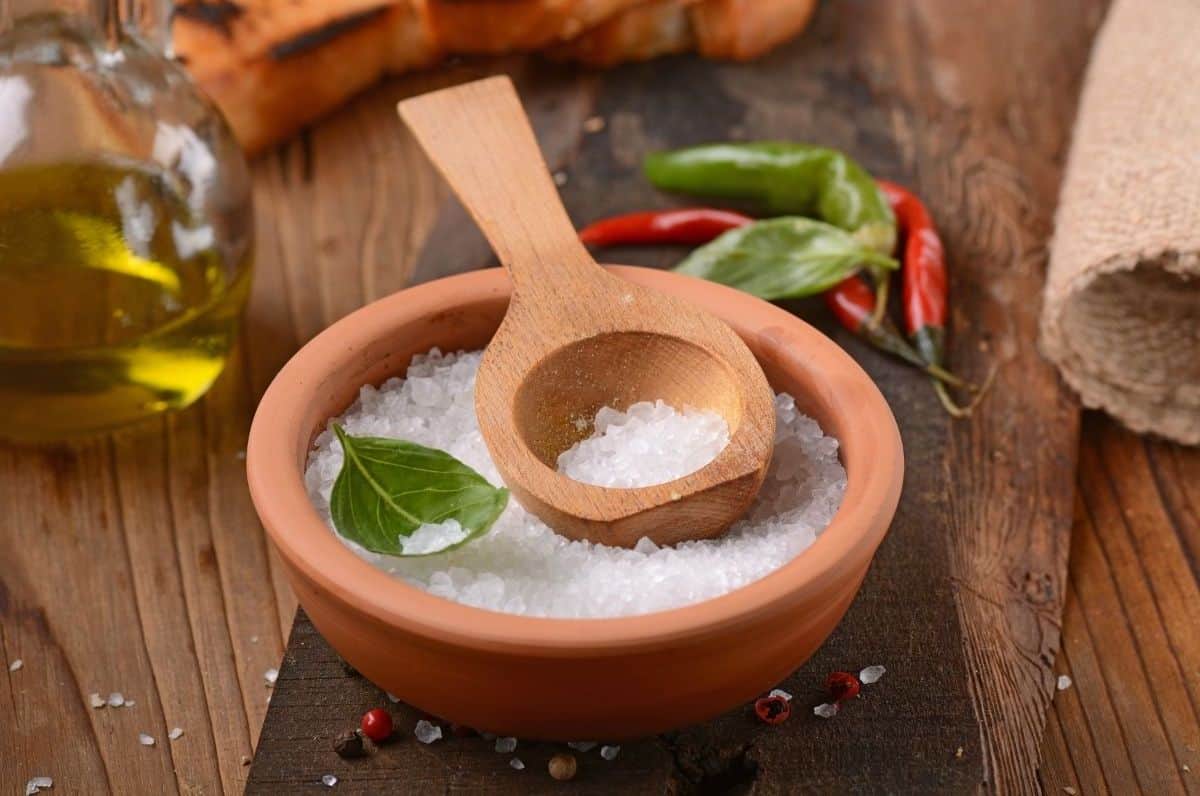
Iodine
Iodine is an essential water-soluble trace element that is vital to thyroid function and, consequently, hormone and metabolism regulation. Iodine deficiencies can cause thyroid problems along with the following symptoms: weakness, fatigue, dry skin, tingling in hands and feet, forgetfulness, and unexplained weight gain. Most people can get enough iodine from iodized salt, seafood, and dairy products. However, vegans are more likely to have low iodine levels because they don’t consume animal products and are more likely to use natural salts such as sea, kosher, and Himalayan pink salt. These salts do not contain any iodine.
Vegan sources of iodine
Iodine levels in plant foods are dependent on the iodine content of the soil in which they were grown, which makes seaweed one of the best plant foods to incorporate for iodine. Make sure you buy your seaweed from trustworthy companies to avoid heavy metals. You can try implementing:
- Dulse flakes – a type of seaweed
- Iodized salt – just ½ tsp is enough to meet your daily needs
- Iodine supplement
How much should I take?
The recommended daily amount is 150 mcg for adults but is higher for pregnant or breastfeeding individuals. Take caution in having too much iodine, which can have harmful effects as well. Daily iodine intakes should not go above 1,100 mcg a day unless recommended by your provider.
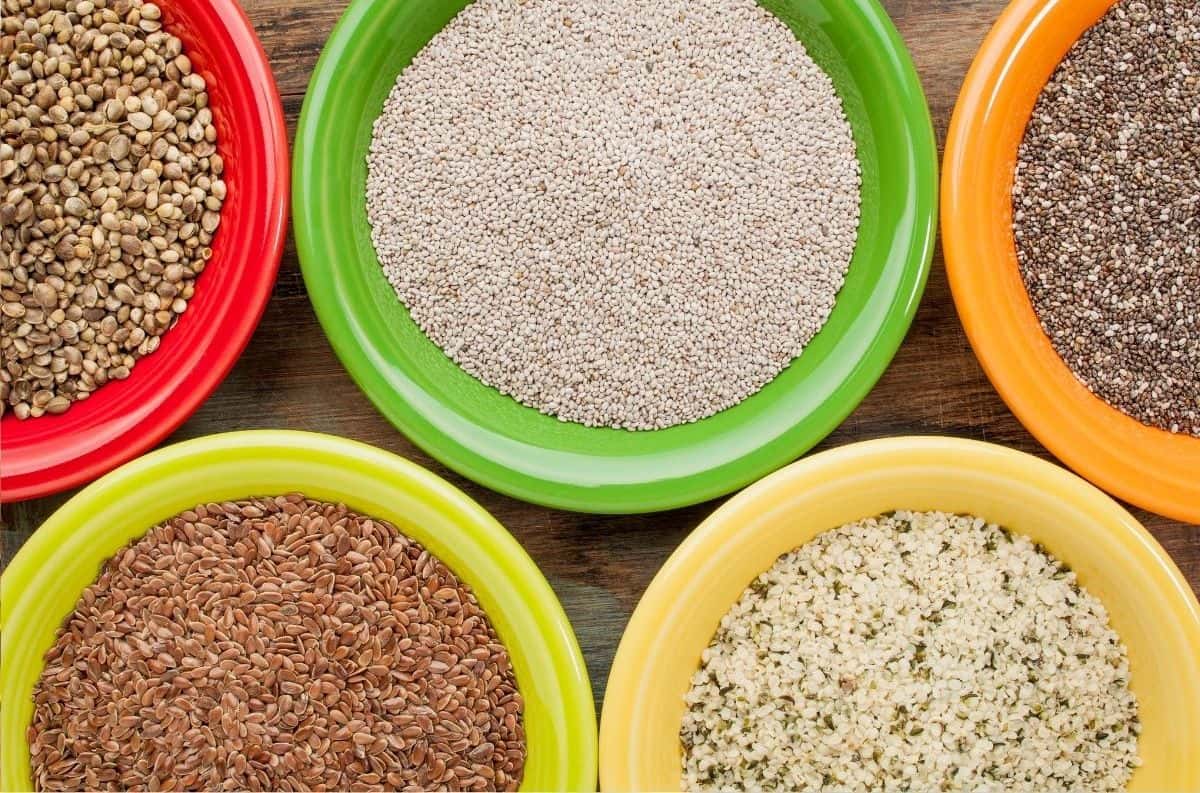
Omega-3 Fatty Acids
Omega-3 fatty acids are essential fats that must come from our diet. There are 3 main types of omega-3s fatty acids:
- Alpha linolenic acid (ALA)
- Long-chain omega-3 fatty acids, the active forms:
- Eicosapentaenoic acid (EPA)
- Docosahexaenoic acid (DHA)
ALA fatty acids can be directly obtained by eating plant sources of food, but only a small percentage is converted into the longer chain fatty acids – the omega-3 fatty acid that play important roles in the body. Because omega-3 long-chain fatty acids support important processes in our bodies (cardiovascular, cognitive, and digestive health) it truly is essential to include them regularly. Most people obtain their EPA and DHA from fish and fish oil as they have eaten ALA fatty acids, which were converted into their longer-chain forms.
Vegan sources of Omega-3 fatty acids
There are quite a few vegan foods that contain ALA fatty acids. These can be converted to EPA/DHA, but just not at a high rate. It is important to eat an adequate amount of these foods daily to have enough EPA and DHA converted. Some of the most popular sources are:
- Chia seeds
- Flaxseeds
- Walnuts
- Hemp Seeds
- Plant-based oils (flaxseed, olive, walnut)
- Fortified foods
Many vegans opt to, on top of including the former ingredients in their daily meals, include an algae-based omega-3 fatty acid supplement to ensure they are getting enough of their daily needs met.
How much should I take?
If you are supplementing with food alone, research suggests having 1-2 tablespoons of ground flaxseeds per day is enough to take care of our EPA and DHA requirements. For those supplementing EPA and DHA, most professionals agree that 200-300 mg per day is enough.
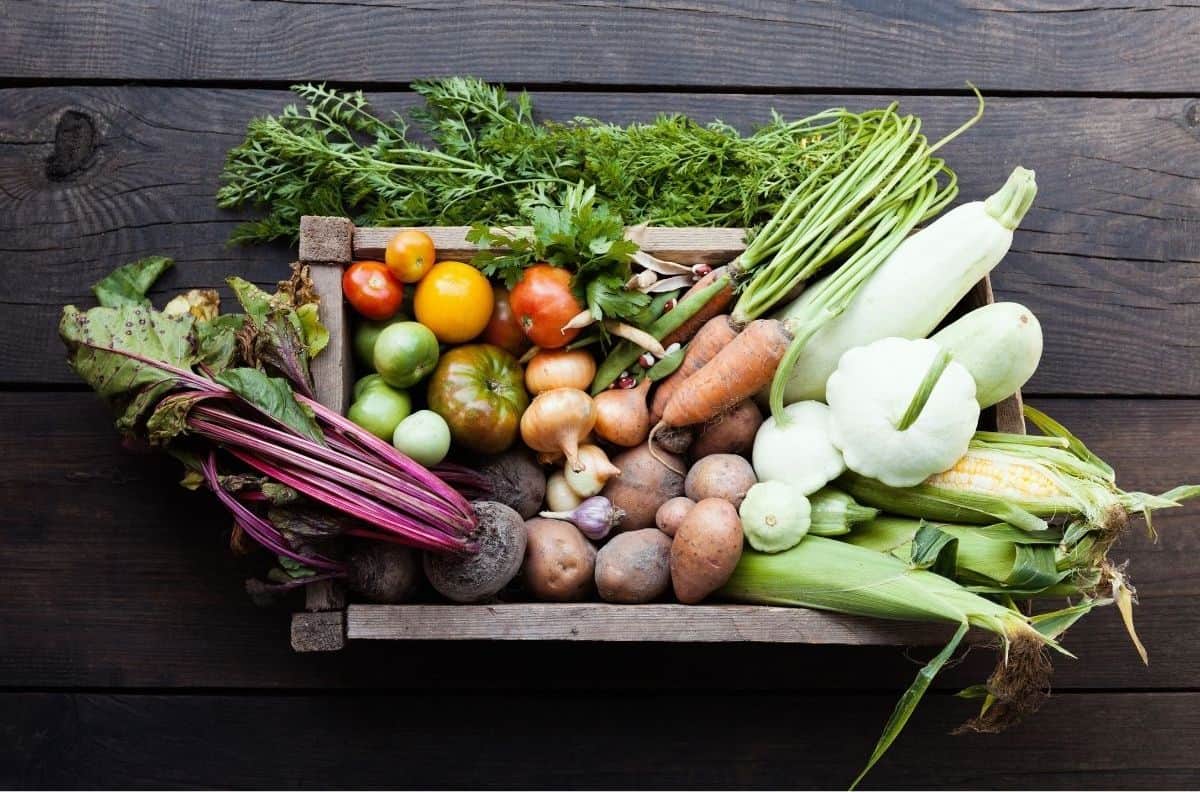
Extra Supportive Nutrients
There are a few more nutrients in addition to the aforementioned that are often consumed in low volumes on vegan diets. These nutrients can be easily incorporated into a nutrient-dense diet, but some may choose to cover their bases with a vegan multi-vitamin:
- Calcium
- Zinc
- Vitamin A
- Vitamin C
- Iron
- Magnesium
Are fortified foods bad?
If fortified foods are not in their “natural” form, should we still consume them? When food is fortified, a nutrient is added to the whole food to increase its nutritional value. When we ingest vitamins and minerals from plants or as an addition to foods, our bodies will still process them in the same way if the correct form of the vitamin or mineral was added. Eating fortified foods is a reliable way to make sure you are getting an essential nutrient that might not be as easily available as, say, vitamin C.
Can supplements be non-vegan?
A protein supplement with whey or casein would be easily detected as non-vegan, as whey and casein are only found in dairy milk. But what else should we look out for when choosing a supplement? Double-check that your vitamin D supplement is vegan. Otherwise, vitamin D3 may be sourced from lanolin, a wax secreted by wool-bearing mammals such as sheep.
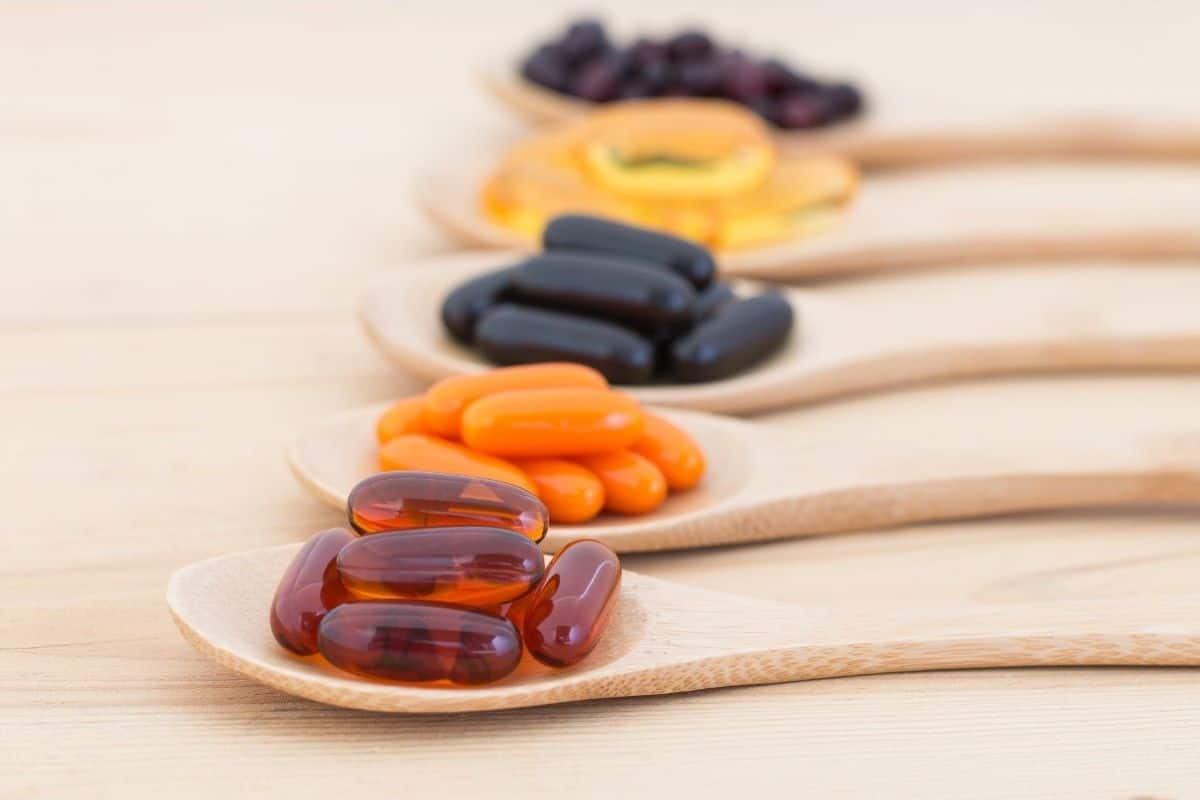
Final thoughts
A well-planned vegan diet can be healthy, fit your nutritional needs, and is appropriate at any stage of life. However, normal blood levels of certain essential nutrients such as vitamin b12, vitamin D, iodine, and omega-3 fatty acids, may be difficult to obtain through diet alone. Taking supplements, as approved and recommended by your healthcare provider, along with eating a nutrient-dense plant-based diet, can help you avoid deficiencies so you can live your best vegan life!
You may want to work with a registered dietitian who specializes in plant-based nutrition if you’d like to ensure you are getting all the nutrients you need. You can check out Amanda’s meal plans and counseling services here.
